
The average shipping container rental cost varies based on factors like size and rental duration. Find out how to budget for renting a shipping container.
New moving survey reveals trends on relocation costs, tipping habits, and emotional impacts


Today, Angi, a leading and comprehensive solution for home services, launched a new survey exploring moving in America. In this survey, we compiled data from 1,000 Americans that have relocated within the last five years on moving trends and the emotional journey of settling into a new home. We also analyzed comprehensive moving cost data from Angi users.
Whether hiring professional movers or relying on friends and family, the journey from one home to another is complex and multifaceted. Despite the challenges, many people find the moving process ultimately rewarding, and experience a significant shift from stress and anxiety to relief and empowerment once they settle into their new homes.
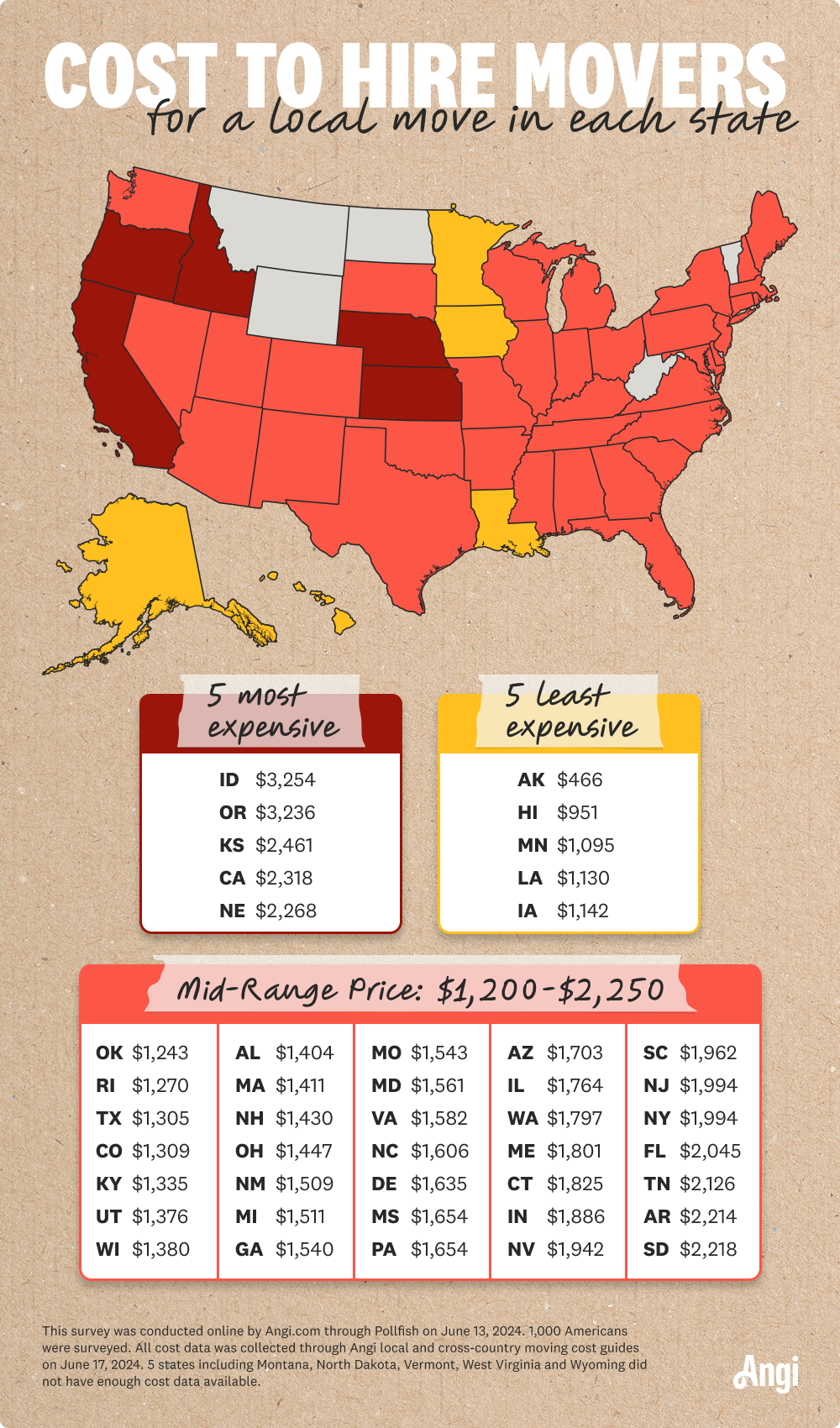
The cost of moving varies greatly based on factors such as distance, scale of the move, and whether you hire professional movers. Our data found that the average cost in the U.S. to move locally is $1,692, while the average cost to move long distance is $4,401. Notably, Alaska had the lowest average cost for a local move at $466, while Idaho recorded the highest average cost at $3,254.
The cost of hiring movers is a large factor in the overall moving cost, averaging between $879 and $2,543 or more, with the national average being $1,692 for a local move. Among the survey respondents, 48% opted not to hire movers, instead leaning on help from friends and family or handling the move independently. Survey participants who hired movers for their move were generally satisfied (76%) and would hire them again (81%).
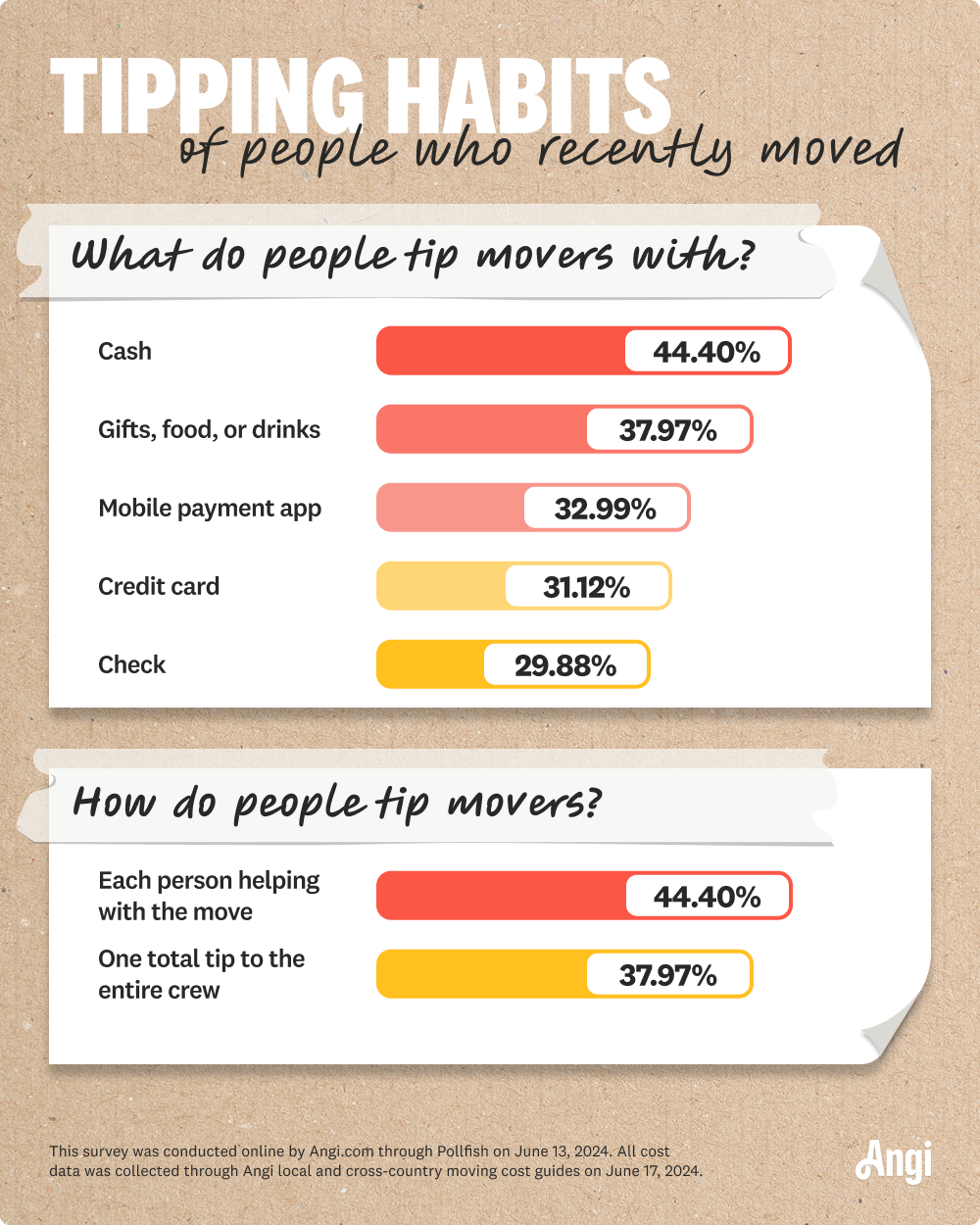
In a time where tipping culture is widely discussed, we explored tipping practices in relation to professional movers. We found that most survey respondents preferred to tip their movers in cash and per person, with less common methods including credit cards, mobile app payments, or checks.
Alternatively, survey respondents who relied on help from friends and family most commonly compensated them with food and drinks rather than money. The cliché of giving pizza and beer in exchange for moving help is true: Over half (51%) compensated their friends and family with food, 41% with drinks, and only 29% with money. On the other hand, 19% of respondents opted to move without assistance from friends or family.
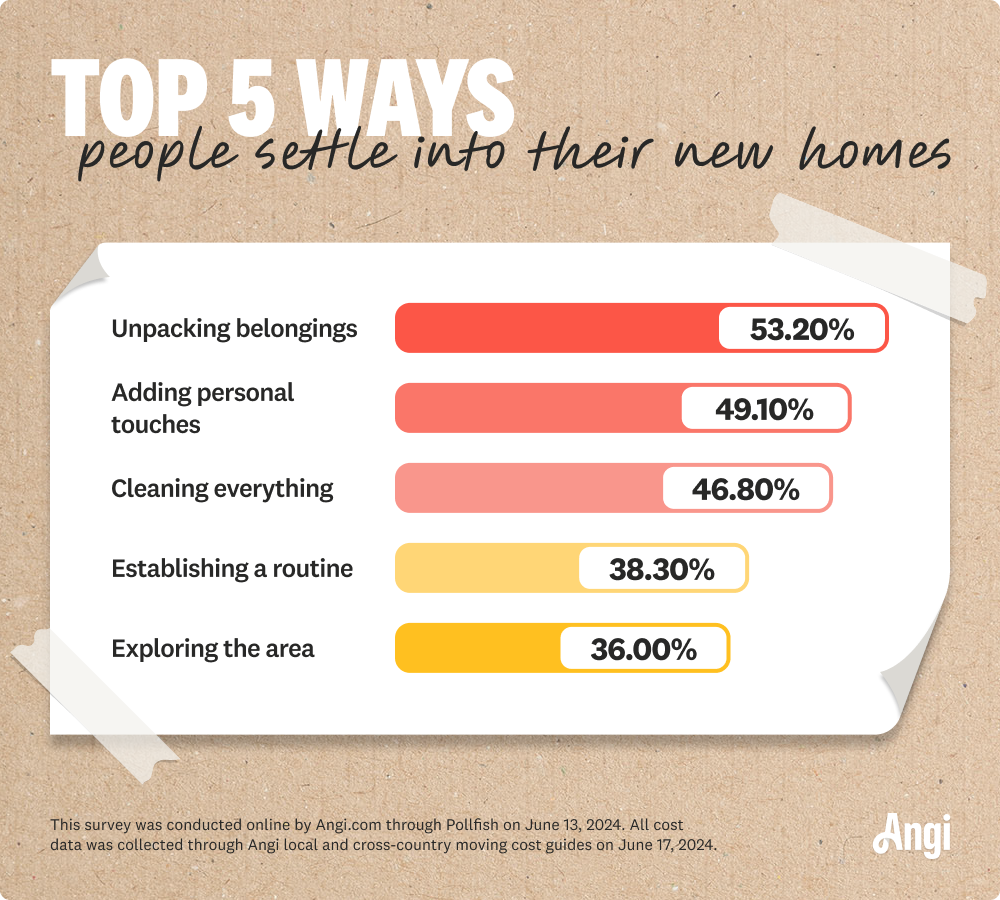
Our survey revealed that moving can evoke strong emotions. Before moving, survey participants reported experiencing more negative feelings than positive ones, with 42% reporting stress and 41% reporting anxiety. However, after the move, these negative emotions decrease considerably, with stress dropping to 19% and anxiety to 18%. In contrast, feelings of relief and empowerment rise post-move, with almost half of respondents (48%) reporting feeling relieved (vs. 20% pre-move) and 21% feeling empowered (vs. 15% pre-move), alongside a significant reduction in feelings of fear and being unsettled.
Settling into a new home is a major factor in the emotional impact of moving and varies depending on circumstances. For example, people who relocate long distances typically take longer to feel settled in their new homes compared to those moving locally. The average time to settle is over two months (74 days), with 11% taking more than six months.
The strategies people use to settle into their homes vary: Emotional aspects such as establishing a routine and exploring the area are significant for those who move long distances, while adding personal touches and unpacking belongings play a pivotal role for those who move locally.
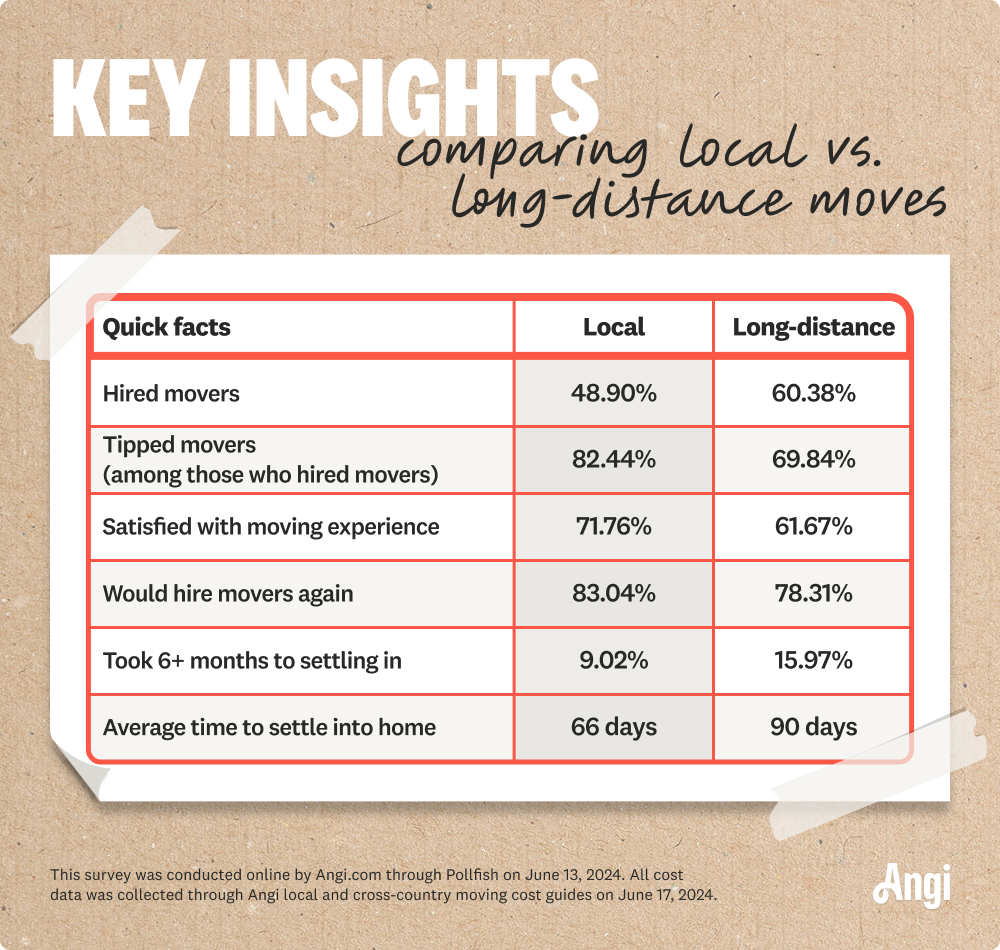
There’s a major difference between moving across town and moving across the country. Comparing respondents who moved short distances to those who moved long distances, our data found several contrasts in trends, including the use of professional movers, tipping habits, and overall satisfaction.
Motivations for moving differ significantly between local and long-distance relocations, too. Local moves are often driven by lifestyle changes, including the start or end of a relationship (23%) or home upgrades (20%). Conversely, long-distance moves are more commonly motivated by factors like a new job (22%) or the desire to be closer to family and friends (18%).
Planning for your next move? Angi makes it easy to get quotes and connect instantly with high quality movers for local or long distance moves. Get started here.
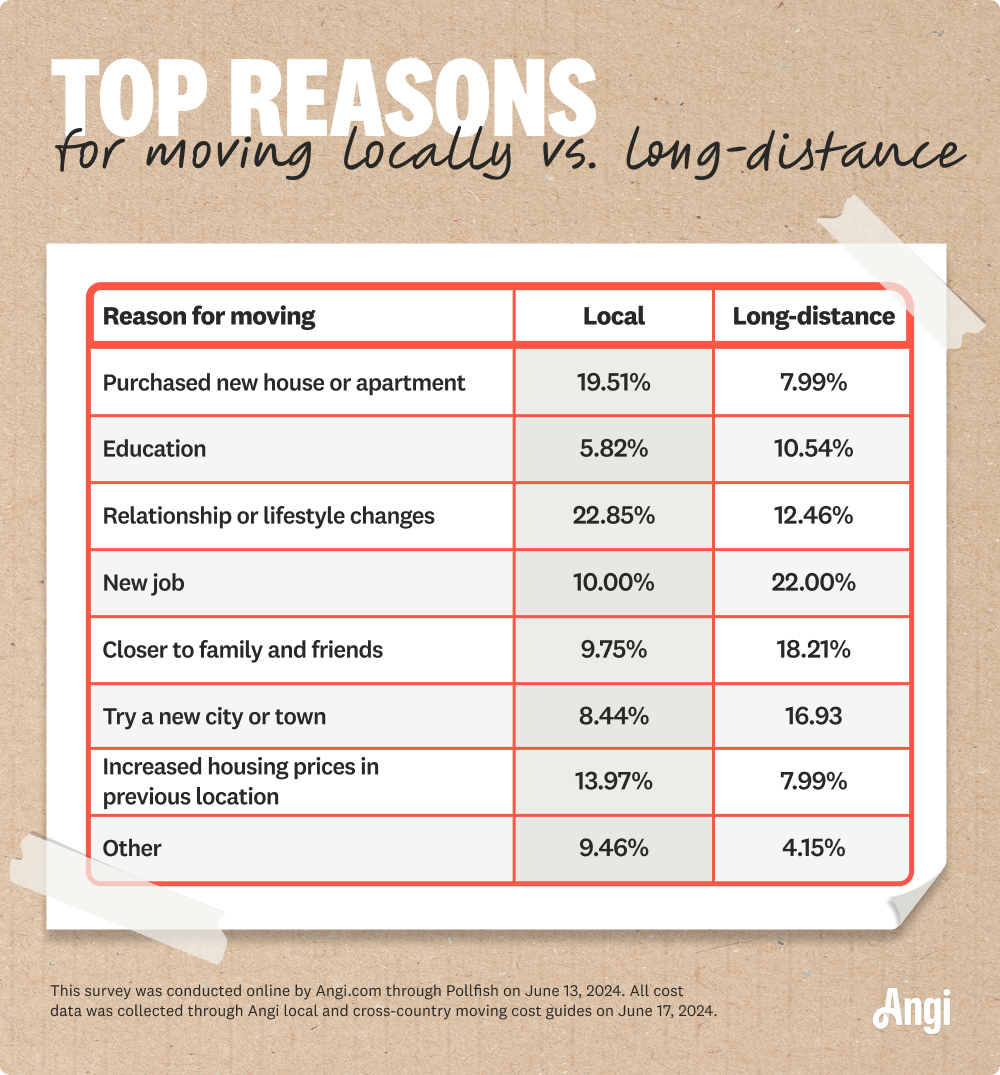
From average costs to expert advice, get all the answers you need to get your job done.

The average shipping container rental cost varies based on factors like size and rental duration. Find out how to budget for renting a shipping container.

This guide breaks down the factors that influence how much it costs to move a bed frame, including frame size, weight, and distance of the move.

The cost to rent a trailer depends on its size and type and how far you’re traveling with it. This guide compares trailer options and their prices.

Not sure whether to ask your friends to help with your big move? In this guide, we review the best practices for enlisting friends for moving help.

Shed relocation without the hassle is possible; either to a different or new location. Discover the best professionals to safely and efficiently move your shed to its new home.

Moving your car across the country can cost hundreds or thousands of dollars, depending on if you plan to drive, tow, or ship it.